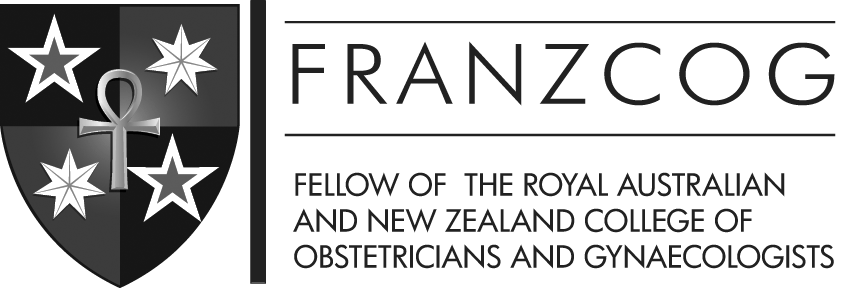Breastfeeding
Breastmilk provides a newborn baby with all of the essential nutrients needed for healthy development in the infancy stage. Breastfeeding can be established as soon as possible after birth and exclusive breastfeeding is recommended till solids are introduced.
Below are some handy tips and information about breastfeeding and breast milk, if you choose to and are able to breastfeed.
Breastfeeding benefits for babies
Breastfeeding benefits for your newborn baby are:
- Breast milk is easily digested and has a mixture of proteins, fats and essential vitamins needed for the baby’s healthy growth
- Antibodies that are present in breast milk will help improve the baby’s immunity to bacteria and viruses
- A baby that is breastfed for six months has fewer health issues such as ear infections, respiratory complications, diarrhoea, and hospital visits when compared to infants who are not breastfed for that length of time
- Breastfeeding reduces wheezing in young children
- Breastfeeding helps to create a bond between mother and child and gives a sense of security to the baby
Breastfeeding benefits for mothers
Benefits of breastfeeding for the mother include:
- It burns extra calories, aiding in post-partum weight loss.
- A hormone called oxytocin is released which helps return the uterus to its normal size and helps to reduce uterine bleeding after childbirth
- It reduces the risk of breast cancer and possibly osteoporosis
- It saves time on preparing bottles and saves you money on buying formula
- It creates a strong bond between you and your baby
Colostrum
Colostrum is produced at the end of pregnancy and is usually the first breast milk your newborn will drink. It is yellowish and sticky (compared to the whitish colour of regular breast milk) and it is an excellent source of nutrition for your new baby.
ABC of breastfeeding
A = Awareness
Be aware of any signs of hunger from your baby and breastfeed accordingly. Avoid waiting until your baby is crying or showing signs of frustration. Over the first few weeks, you should be nursing your baby 8-12 times per day.
B = Be Patient
Do not hurry your baby while breastfeeding. It is important to remain patient and take as long as required until your baby is satisfied. Most infants take 10-20 minutes per feed.
C = Comfort
Both you and your baby should be comfortable during the breastfeeding process. Make sure your head, neck, arms and feet are supported before you start to feed.
Baby latching on
Prior to any feeding, it is important to make sure your baby has latched on properly to the nipple. This will minimise the likelihood of you experiencing sore nipples.
Some effective ways to help your baby latch properly include:
- Make sure your baby is in a comfortable position. It is not advisable that your baby has to twist its head or neck during feeding.
- Instinctively, your baby will open its mouth if you gently rub your nipple on the lower lip
- Centre your nipple just above the baby’s tongue
- If the baby has latched correctly, you may feel a painless tingling sensation once he or she starts to feed. Your baby’s lips should cover the entire nipple and darker skin around the nipple (called the areola) if it has latched on properly.
- If you feel the baby has not latched on properly, release the nipple by gently placing a finger in the baby’s mouth. Once the baby lets go, you can try to get them to latch correctly.
Pumping and storing milk:
Should you be unable to breastfeed you can express milk using your hand or a pump and refrigerate it for later use. Do not thaw bottled breast milk in the microwave, but allow it to reach optimum temperature by placing it in a bowl of warm water. Your baby may require some weeks to become used to being bottle-fed.
Difficulties in breastfeeding
It is not uncommon for mothers to experience difficulties with breastfeeding. There are many resources available to help get through these struggles, and you can ask the midwives or lactation consultants at the hospital (available on request) or phone our midwives at POGS for details of other resources.
Sore nipples:
Sore nipples are often a result of your baby not latching on correctly. It is important to completely empty the milk ducts as this helps to avoid swelling and hardening of the breasts, which can cause pain. After several weeks of feeding, your nipples should no longer hurt, but it is quite normal some discomfort in the early stages. If, after several weeks of breastfeeding you are still experiencing nipple-pain, it is recommended you consult your doctor.
Dry, cracked nipples:
Avoiding cosmetic products that contain alcohol will help minimise the likelihood of developing dry, cracked nipples. Another good help may be to apply lanolin after breastfeeding. Taking steps to keep your nipples dry, such as regularly changing bra pads will also help.
Blocked ducts:
In the event you experience a blockage of your milk ducts, you may develop a sore spot on your breast. This can be treated with warm compression, massage and frequent nursing to alleviate any discomfort.
Breast infection (mastitis):
Mastitis is a bacterial infection that can lead to fatigue, fever and the flu. It is recommended that you consult with your doctor, who may prescribe antibiotics to treat it. Prior to recommencing any breastfeeding, it is recommended you check with your doctor if it is safe to do so.
Stress:
Stress can interfere with your body’s natural ability to express milk. Try to enter into a calm state of mind prior to breastfeeding your baby as this will promote an easier flow of milk.
Producing sufficient milk:
It is a common worry among new mothers that they may not be producing enough milk to satisfy their baby’s needs. A baby that requires 6-8 nappy changes per day is receiving sufficient milk (as a general rule). Your body will continue to produce a constant supply of milk if you breastfeed your baby frequently. Milk supply is independent of breast size. It is important to maintain your own nutrition levels to maintain good milk production and remember to drink plenty of water.
When breastfeeding is not recommended
In some cases breastfeeding can be harmful to your baby and you cannot breastfeed if you are:
- HIV positive
- Receiving chemotherapy
- Using illegal drugs
- Taking certain prescription medicines for migraine, headache, arthritis or Parkinson’s disease (check with your doctor if you wish to breastfeed whilst on any prescription medication)
- Your baby has galactosaemia (inability to tolerate the galactose in the breast milk)
Talk to your doctor regarding breastfeeding if you are on any medication. It is important to note that having the flu or a cold should not stop you from breastfeeding, as your child will gain immunity.






